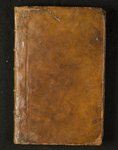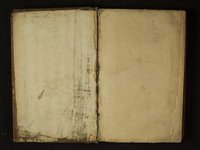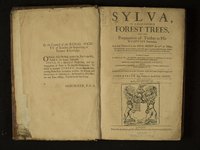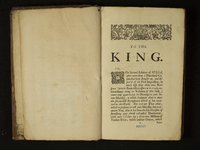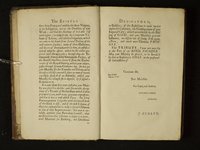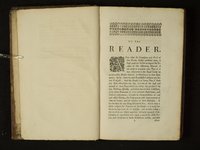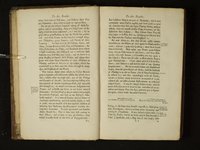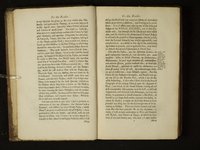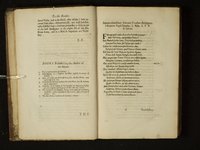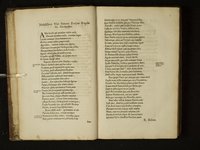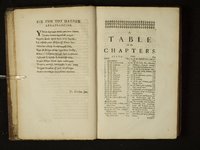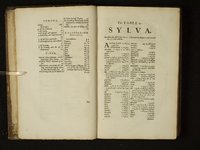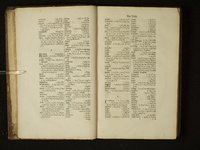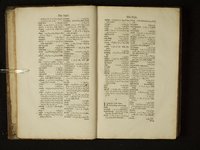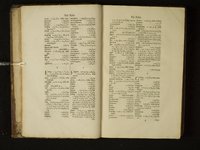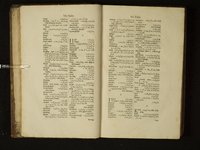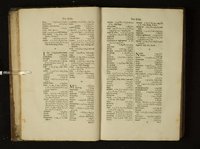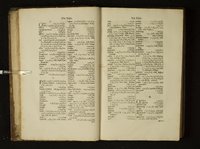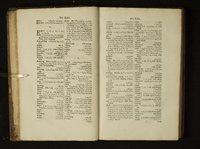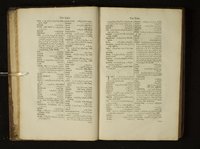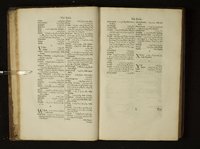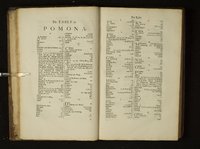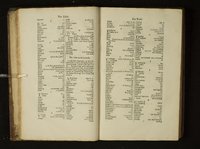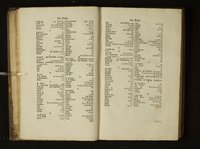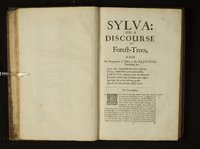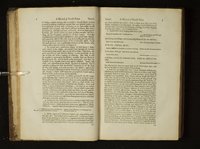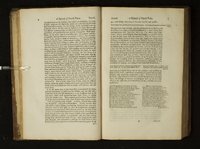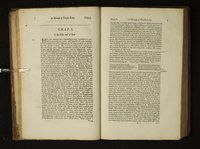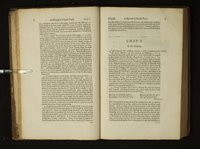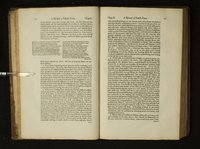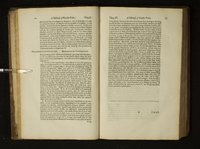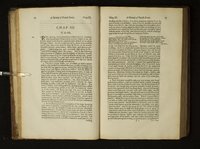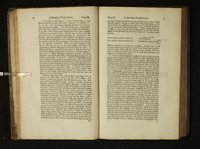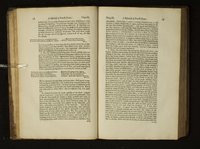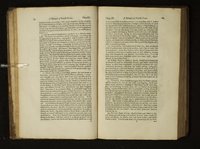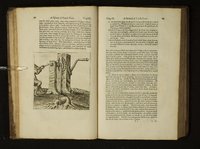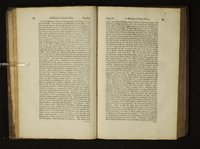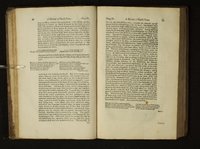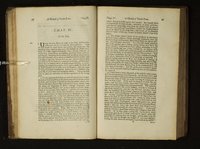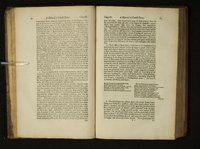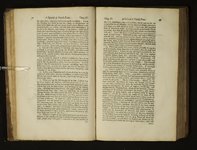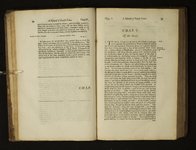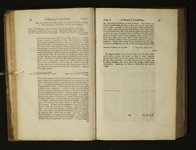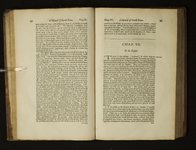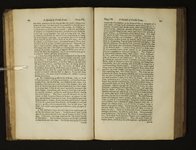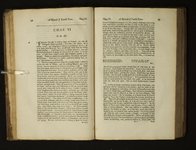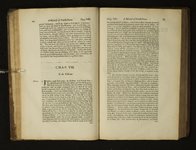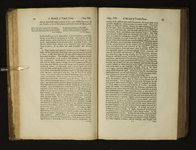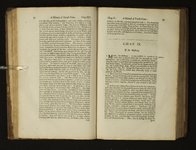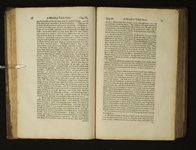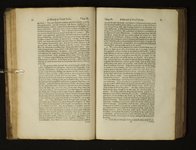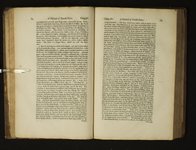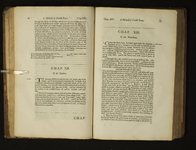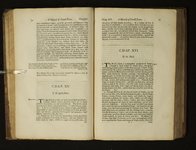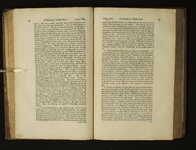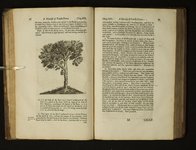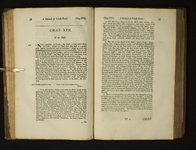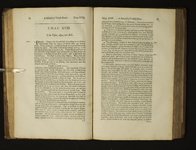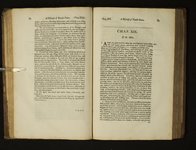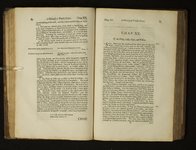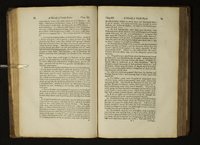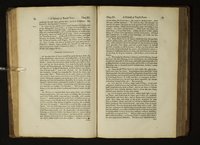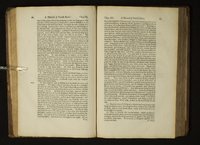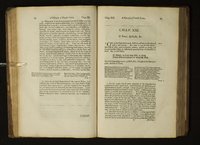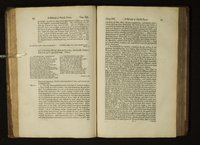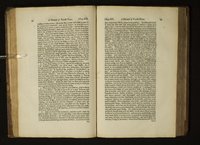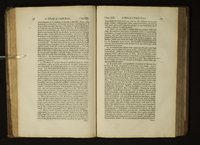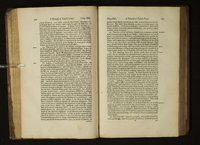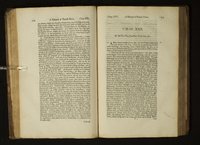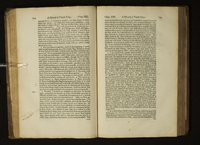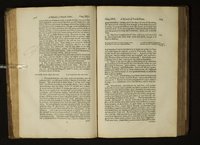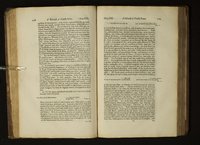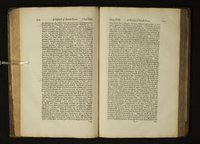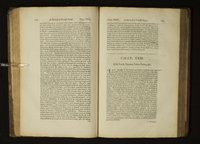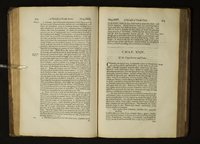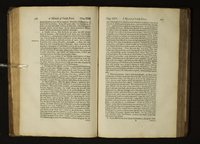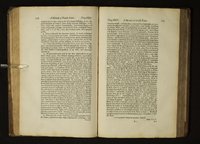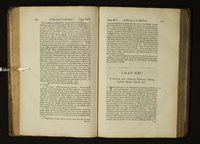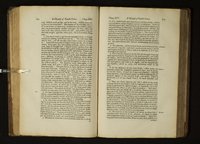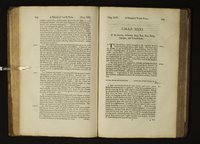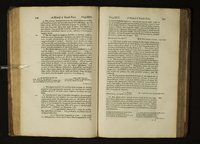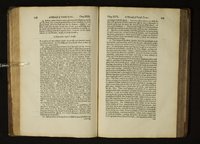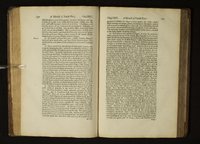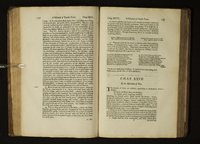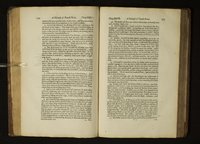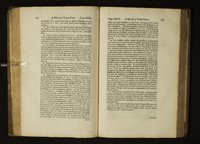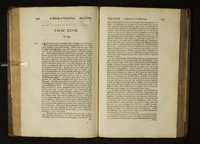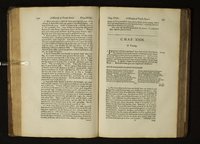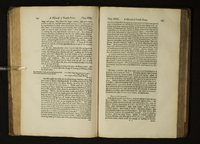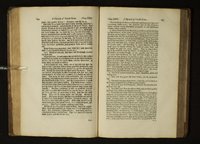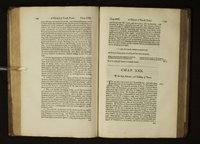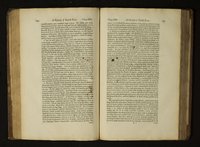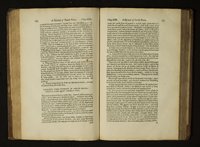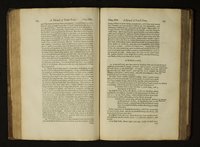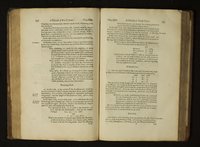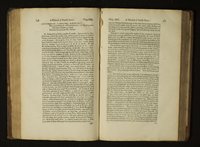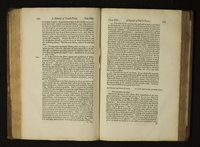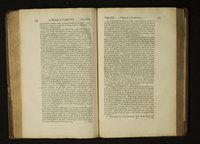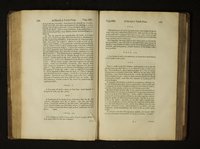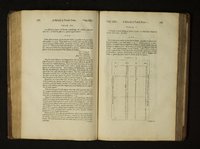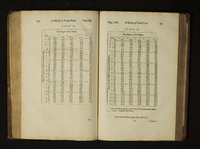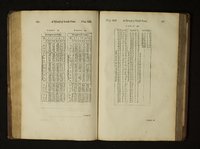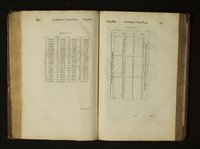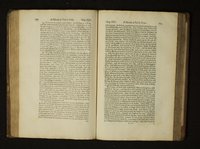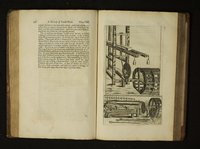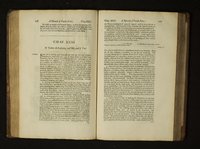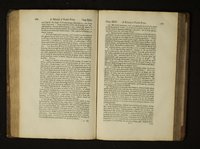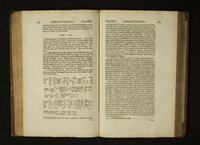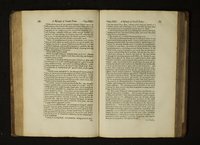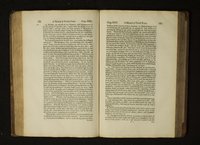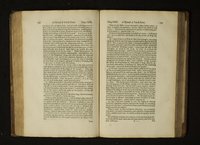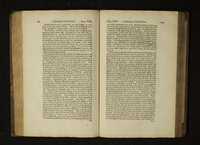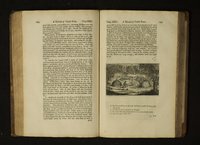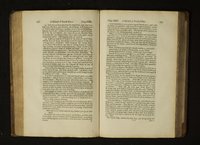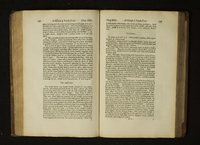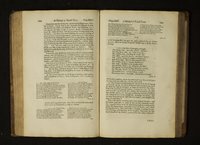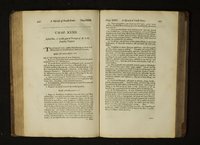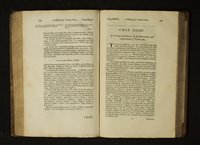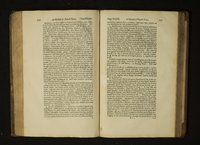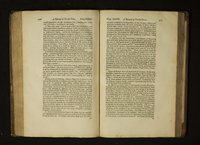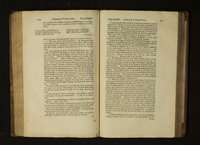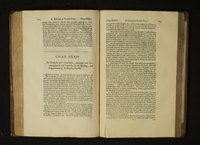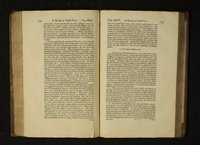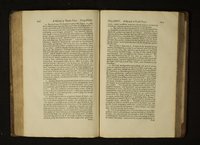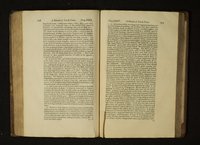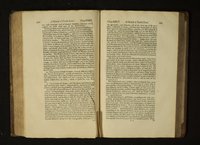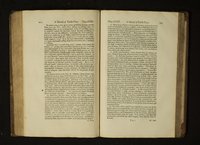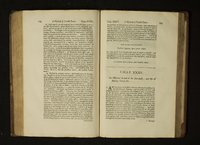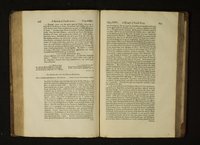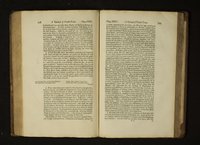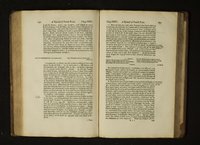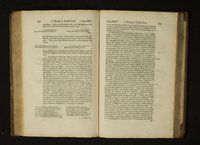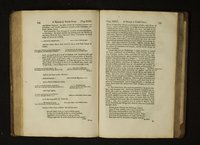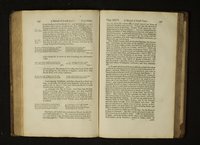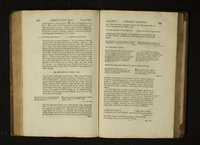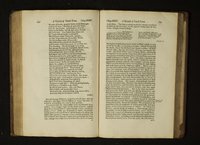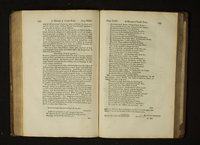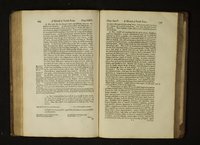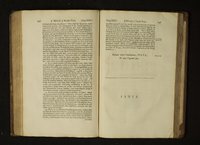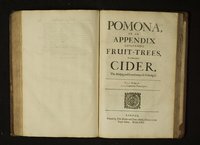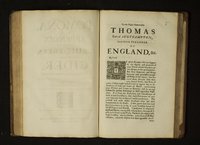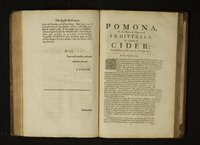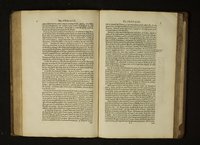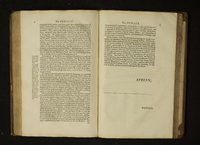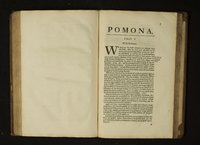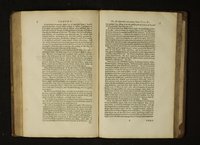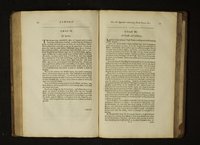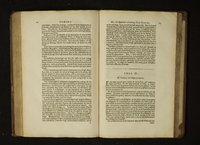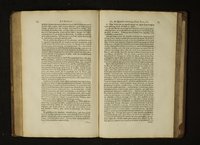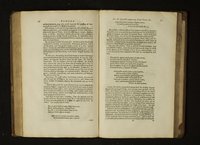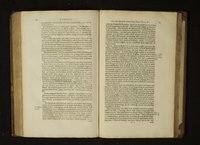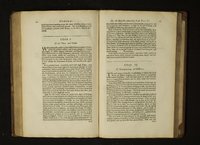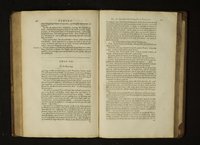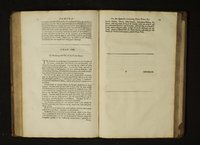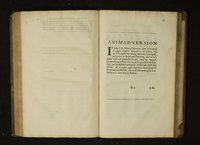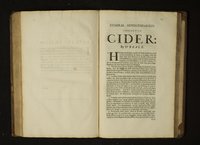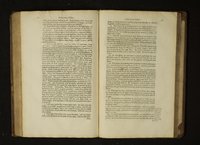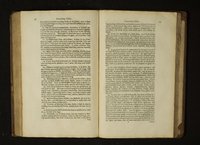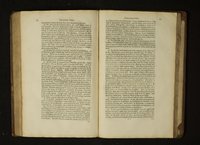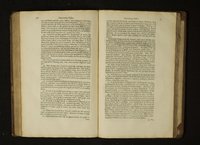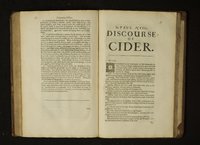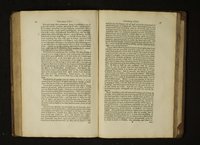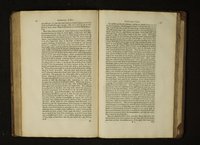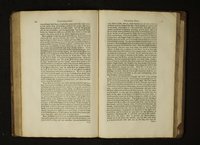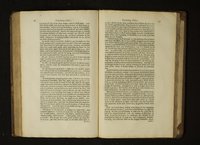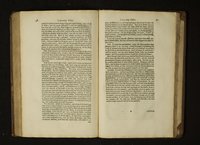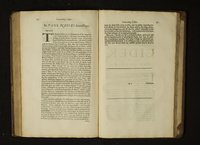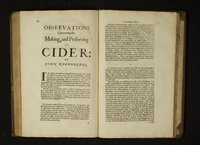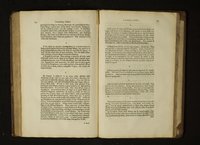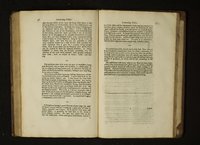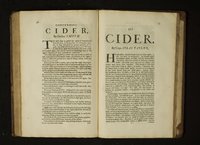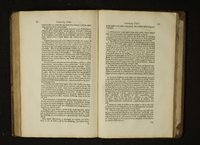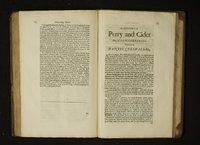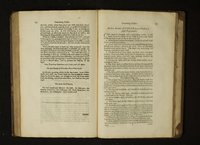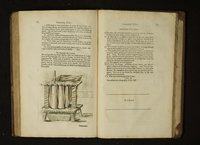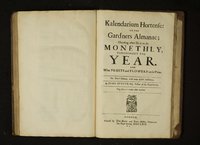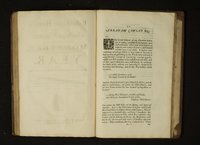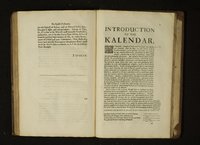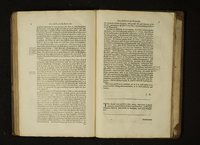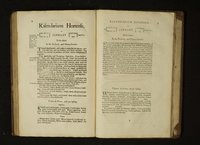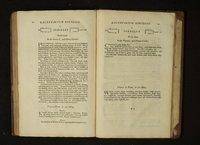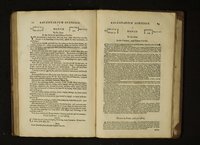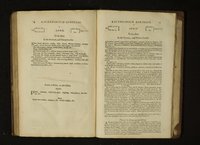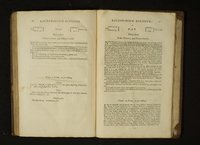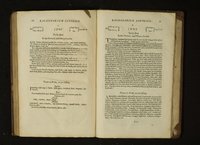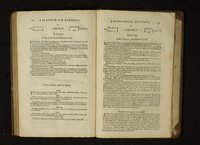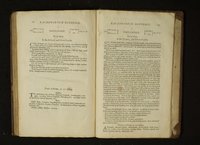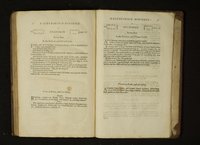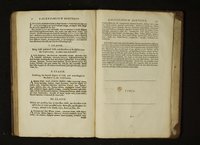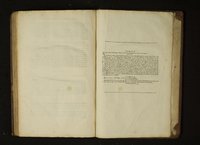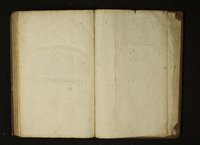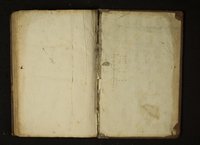| OCR Text |
Chap.XXXIII. A Difcourfe of Foreft- Trees. Chap.XXXIII, fit to produce th is waffing-Oare more plentifullyin #00d-/and,than any other Groun d,’ and te enrichour Forefés to their own Deftruction, If agreat wood confit chiefly of Uxder.wood great trees of Beech, or the like grow difperfedlyTythable, and fome amongft them 5 Tythe is due, unlefle the Cuftom be otherwife of all both great and lefler together : Andin like manner if a wood confift for the moft anperies 1 © conditus alei Faseben Bidaesoo BeyCiet eeerat ak tea ween from all time appear Daa ladle, where no Aine is nears part of Timber trees, with fome fmall {eatte rings of Oxder-wood amongft them, no Tythe fhall be paid for the Under wood or Bufbes, Trin, r Integra, falvague folonon Couleii Pi. 1. 6 iin for fo our {weet Poet deplores pe a = pan 2 , ed Confirm have ving of Timber-Trees, ferving the preler ,for Queen a a S venteT ing |thea offaid impair VVoods much ene the a for this imployand offals onely permitted to be made ufe of th ers er- Trees P pay none, ; but imber y of Tythes, I find Timb do, both er for Body, Br cien Bark, Fruit, Root, and even e Siaa eH oe ~— Ene Soshets crowitie out of them; and the Tenth of Tree other all and Sallows, VVilows, foof And fold, or kept : Alfo of Sylva caduay as Coppices, 7 o not apt for Timber s e S ta } eve r the Proprietor receive der- woods payy the tenth when e mp van un-exe 0 named have we thefe : Parts. Butifif any of 5 , or Plow boot within the Parifh in wh ely for Mounds, Fencing shaydeo or forthe Fuel of the Onzer, ", pe Peeameol thewa i have the Zyth-wood,an dthe Parfoz that of the Vicar bad , i lofed; nor are Under-. woods gru bed up by the Roots Tythabie K BA be there cafes former the of any and , this for wntell But for Timber-trees, fuch as oak, Elm Calleareala Timber iin all places after the fir imenty years iit Beco:} Ti beamty Maple, Afpen, and even Hafel (many of he: pees ey Countries reputed Timber) they are not to pay Tit _ Hs . a are fell’d before the {aid age of tmenty years trom their jf. Pla firt : Note here ne the Omuer fella fruit-tree ( of which the Parfox has had bythe that year) and convert the wood into fuel, the tythe ta becaufe he cannot receive the tythe of one thing tice in O : year. ye Beech, in Countrys where it abounds, is not aah oe in fuch places tis not accounted Timber, Cafe. 16 fac. Co, B, Pi ' rieeMihianh Buckinghamfhire have been adjudged Timber, and oid anda Tythe-free. Pafch.17 Jac.B.R, If aTreebe lop'd under twentyyears growth, a ea be permitted to grow paft twentyyears, and then be op 28 3 notythe is due forit, though at thefirft cutting it were oo h If woodbe cut for hedges, whichis not tythable , and any be 9 i un employ’id, no tythe ythe thal] th: be> paic paid tor it. of it If mood ie cut for Hop-poles (where the Parfon ie Vicar has Hop-p s, of Hop-pole tythe of A not haveretythe cafe he fhall this cafe in tythe Hops) inthis A Difcourf of Forett-Trees, a 19 Fac. B,R. Adjude. 16 Jac. in C. B, Leonards cafe, No Tythe is to be paid of Common of Eftove rs , or the wood burntin ones Howe. Nowas to the manner of Payment. To give the Parfon the Tenth Aereof Wood int a Coppice, or the tenth Cord ( provided they are equal ) isa good payment, and fete ting forth of Zythe, efpeciallyif the Cxffom confir m it. The Tythe of Maft of Oak, or Beech, if fold » by the tenth Penny : if eaten by Swine, the muft be anfwerd worth ofit, And thus muchwe thought fit toadd concer ning Predial Tythes defire to be farther informed mayconfult my Lord Cook’s; who has Rep. 11. 48,49. 81. Plow.470. Brownlows Hep, I part. 94. 2 part. 150,D. & St.169. &c : But letus fee what others do. 15. The King of Spain has neer Bilbao, fixteen times as many Acres of Copfe-wobd as are fit to be cut for Coal in that when“tis ready to befell'd,an Officer firft marks one year; fo fuchasarelike to prove Ship-timber, which are let ftand, as fo many dedicate Trees : But bythis means the Iron works facred, and are fupplied in the fame place, without at all diminifhing plentifully Timber, Then in Bifcay again, every Proprietor, and the ftock of other, Plants three for oe whichhe cuts down; and the Law obligi ng them is moft feverely executed. There indeed are few, or no Copfes ; but all are Pollards5 andthe very lopping (1amaflur'd ) does furnifh the Lron-works with fufficient to fupport them, 16. What the practifé is for the maintaining of thefe kind of Plantations inGermany, and France, has already been obfery’d to this MWuftrious society by the Learned Dr, Ateret; viz that the Lords and (forthe Crown-lands ) the Kings Commilfioners , divide the Woods, and Forefts, into eighty partitions 5 everyy ear felling one of the divifionss {0 a3 no moodis fell'd in lef than fourfc ore years; And when anyone partition isto be cut down, the Officer , or Lord contracts with the Buyer that he fhall at the diftance ofever y tmenty foot ( whichis fomewhat neer) leave a good, fair, found and fruitful Oakftanding. Thofe of *twixt forty, and fifty years they reckon forthedeff, andthen they are to fence thefe Trees from all forts of Beafts, and injuries, for a competent time; which being done,at the feafox, downfall the Acorns » which ( with the 4z- tumnal rains beaten into the earth ) take root, and in a thort time furnif h all the Wood again, where they let themgrowfor four, or five years; and then grub up fome of themfor Fuel, or Tranfplantations , and leave the molt provable of them, to contin ue for limber. 17. The French King permits none of his Oak woods, though be. longing (fomeof them) to Afounffeur Chis Royal Brother) in Ap- penage, |

